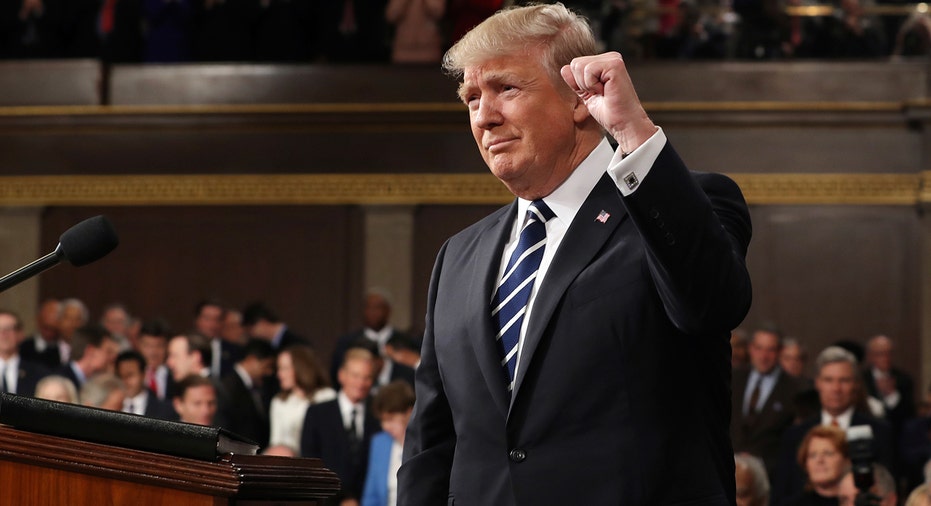Trump Makes Healthcare a Priority, Insurance Stocks Surge

UnitedHealth (NYSE:UNH) is one of nine stocks on the Dow Jones Industrial Average hitting an all-time high Wednesday, in the wake of President Trump’s first address to Congress where he provided an outline of what he expects to guide the GOP as it begins to coalesce around a healthcare replacement bill.
Steve Mnuchin, the U.S. Treasury Secretary, reaffirmed the administration’s commitment to making healthcare a priority on Wednesday.
“First of all, we’re going to get both [tax and healthcare reform] done. The reason why we did ObamaCare first was that it’s the priority right now,†Mnuchin told FOX Business’ Neil Cavuto.
Along with the administration’s commitment to tackle healthcare first, investors are pleased with the changes the president is promising to make.
“Tonight, I am also calling on this Congress to repeal and replace ObamaCare with reforms that expand choice, increase access, lower costs, and at the same time, provide better healthcare,†the president said Tuesday night before a room filled with congressional members and special guests.
The president’s proposals include continuing coverage for citizens with pre-existing conditions, allowing Americans to use tax credits and expanded Health Savings Accounts, giving state governors greater flexibility with Medicaid, protecting consumers from price surges and allowing insurance plans to be bought and sold across state lines.
While critics say the president, and the Republican Party, have yet to put forth concrete details about their replacement plan, the market is cheering what it has heard so far.
“Healthcare names are up on the road map that was given for the Replace in the repeal and replace of [the] ACA,†Art Hogan, chief market strategist at Wunderlich Securities, told FOX Business.
UnitedHealth, which was among the first insurers to announce plans to dial-back its participation on the ObamaCare exchanges last year, opened the day up more than 1.5% higher than its previous close, while Aetna (NYSE:AET), Cigna (NYSE:CI), Anthem (NYSE:ANTM) and Humana (NYSE:HUM) followed suit.
While the pre-existing conditions clause was a hindrance for insurers under the Affordable Care Act, the addition of the option to sell plans across state lines and Trump’s tax credit proposal, which will presumably keep consumers in the market, are seen as net positives.
“Giving insurers more flexibility to offer lower cost plans - perhaps without all of the Essential Health Benefits that the ACA requires, and greater flexibility on age rating - could help coax younger, healthier or more price sensitive consumers back into the individual insurance market...Insurers will be relieved to hear that consumers will be getting help to buy affordable coverage. They want more flexibility, and consumers with a predictable source of funding,†Paul Howard, senior fellow and director of health policy at the Manhattan Institute, told FOX Business.
This rally comes two days after executives from the nation’s largest health insurance companies met with the president at the White House to discuss the process for repealing and replacing the Affordable Care Act and the rising costs of healthcare.
“We look forward to continuing to work with the administration and both parties in Congress on a broader range of solutions that Americans will find valuable in managing their healthcare needs,†Aetna CEO Mark Bertolini said in a statement after meeting with the president.
However, Hogan warns that if the president focuses on healthcare and immigration alone, he could end his own rally sooner rather than later.
“The ‘Trump Put’ could expire if and when he burns up too much political capital doing repeal and replace of the ACA, or immigration. That could push the pro-growth (Tax Reform) agenda items out until 2018,†he said.
As of now, investors aren’t too worried. The Dow Jones Industrial Average surged past 21000 for the first-time ever. The 1,000 point advance came just 24 days after the Dow hit 20000, matching a record for speed not seen since 1999.



















